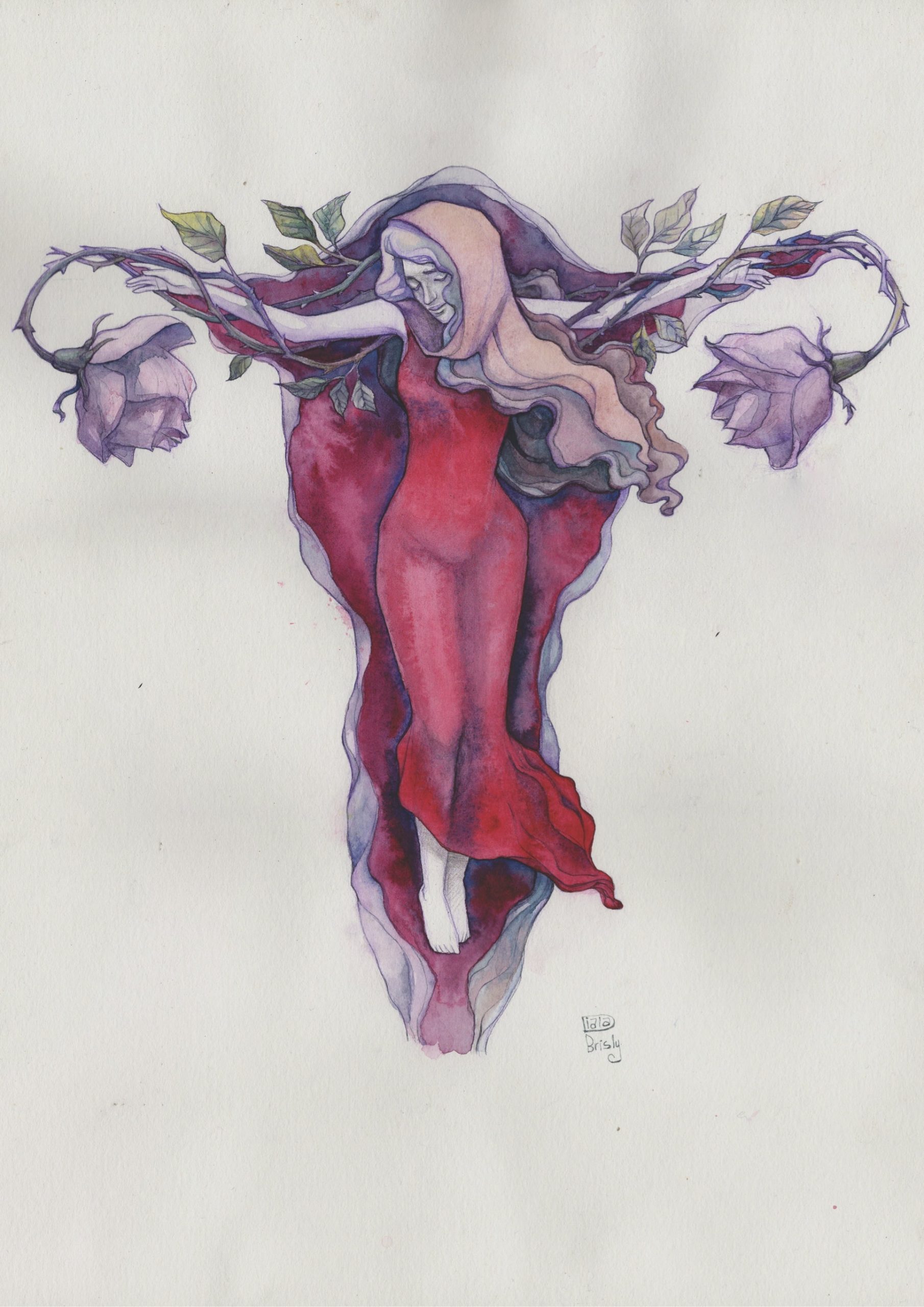
Zahra
Only married women go to the gynecologist. Or at least that’s what I always thought.
The room is white with the occasional poster featuring warnings and NGO messages –“Let Children Be Children”, “No Life With Drugs”. A small table sits in the corner covered in neat stacks of pamphlets. I’m not the target group for most of these. There is a lot of information for married women and women having babies. I’m neither married nor have children.
The waiting room for the gynecologist is full and noisy. Children are calling their mothers names and doctor’s assistants are calling out names. I look around and hope no one recognises me. It took me two hours to travel here by bus; I wanted to go far from my neighbourhood so that I wouldn’t see anyone I knew.
I look around and hope no one recognises me.
Sharp pains shoot across my lower belly, cancelling any external worries I might have. The searing pain has come and gone for months, making it impossible for me to concentrate in class or to study. In Syria I would have gone to my doctor or asked my aunts, they always taught me things about my body and life in general. In Jordan, I only have my mother, father and one sister. Two other sisters were accepted into the USA and have moved with their families. My mother doesn’t like to talk about her body, or mine for that matter, she thinks I have no reason to know much until I marry. My sister Leena is too buried in the issues of her own life to be much help, we are friendly but we don’t relate to each other very much. I’ve come here to discover the reason for my pain on my own.
One night, when the pain was so bad, I asked my mother to take me to the hospital. When I pointed to my lower belly in answer to her question “where does it hurt?”. She thought I was pregnant. She yelled, wishing she had never supported me to do my teaching studies. She always jumps to conclusions. So I left her to panic about my future and went alone in a cab. The hospital gave me painkillers and said I needed to visit a gynecologist to find out more. They also confirmed I wasn’t pregnant (not that I had asked, as I have never so much as kissed a man).I laughed at the idea, what could a gynecologist offer me? I was neither married nor pregnant. I had never been with a man and had no intention of it until I had finished my studies. When I returned from the hospital my mother warned me that not everyone would support their daughter to study until so late, that for her it was an enormous struggle to support me for so long. She hoped I would get married soon and stop being a burden. I think she worries I am getting too old. But I don’t care. I want to leave Jordan, educated and unmarried; 20 is not so old.
As the painkillers ran out and pain returned and nested deeply into my lower belly I had no choice but to make an appointment at a gynecologist. I can’t imagine what I can find out there; I am not married or pregnant?
The women with the large belly and child opposite me shuffle into the doctor’s office. Surely soon they would need to open her naval for the baby to come out.
I wrap my arms around myself, grabbing at my sides hoping the pose will lessen the pain.
I wrap my arms around myself, grabbing at my sides hoping the pose will lessen the pain. It doesn’t and I’m worried about drawing attention to myself. The receptionist shoots me a curious glance and I straighten up and re-fix my eyes in front of me. I tell myself I have a right to be here.
My name is called, I ignore it at first incase someone recognises my name – “Zahra” sounds again. After waiting a moment, I cross the room of eyes, and go into the office.
The doctor is sitting at a desk and greets me with a tired, warm smile. He’s my father’s age, Jordanian. A female assistant closes the door behind me. There’s a desk with a computer and a jar of treats. Next to the desk is a bed with curtains that wrap around it. I see a door opposite to the one I entered through which must be a bathroom. I can barely contain my nerves. I shouldn’t have come alone, it’s foolish for me to be here.
I tell the doctor my husband is waiting outside for me. He nods and smiles. I flash a glance at the female assistant who is looking at me with a relaxing expression.
– Can you tell me why you’re here?
I describe pain in my lower abdomen and that it’s been off and on for several years but has gotten much stronger in the recent months. The hospital told me to come.
– I’ve done nothing to deserve this.
I add, in case he was wondering.
– Tell me more, when does the pain come and what have you done so far to deal with it?
– One night the pain was so bad I went to the hospital and they gave me pills. It comes and goes, sometimes it doesn’t go away at all. Sometimes it’s gone completely.
– How long have you been married?
He asks.
I hesitate before saying, 4 years.
– How many children do you have?
I inhale sharply, wondering what to say.
– Ma fish awlad (there are no children).
– Have you ever been pregnant?
– Of course not!
I respond in a tone more direct than I had intended.
I catch my breath in the back of my throat. My pulse is beating in my stomach.
– I’m not actually married… I’m still studying, but I don’t think I should be at a gynecologists.
– Ok, I understand. Excuse my questions but I want to help find the cause of the pain. You have every right to be here, I am specifically trained in women’s reproductive health not just in the health of women who are married. Does the pain occur stronger during your period?
– I never paid attention to that.
– Try to think back for me.
– I think it happens all the time but maybe it is stronger during my period. Sometimes I can barely stand when I am bleeding. But I thought that was normal?
Sharing this information leaves an empty pit in my stomach. I look pleadingly at the female assistant. I must think of this like sitting a test or exam. I haven’t studied but I am quick at improvising and I must do better. I strain my memory.
– The pain began when I was 15 I think, so 5 years ago. That’s when I remember it beginning. I used to get headaches too but I think mostly those have stopped. I don’t know for sure if it’s worse when I am bleeding but I bleed a lot, so much so I think I might die and I can barely get up during this time.
– There are several things that it could be but we will need to do tests to be sure. For example, it could be endometriosis, a condition that causes pain in the lower belly, like this, but we need to do tests to be sure. This condition has nothing to do with being married or unmarried, it can happen to any woman.
– Ok. What does it mean? How do you find out what it is?
– It’s a condition where cells like the ones in your uterus start to grow in places they usually wouldn’t grow. It can cause a lot of pain in the lower abdomen and there is a risk that conceiving can be more difficult. But we shouldn’t think too far ahead, there are still several possibilities. I would need to do a pelvic exam, but for this we would need the consent of your family.
He looks quickly at a tool that looks like it could be used for cooking, although for no meals that I’ve tried. It is completely unclear to me how this thing could interact with my body but it’s clear it could form part of the test.
– Is there another way to test?
– Unfortunately not. We can give you some pain medicine to manage the pain for now but we can’t investigate treatment options until we know what’s happening. I will give you the forms to take back to your family.
It’s hard for me to process the scariest part of what he’s saying. I see the words “conceive”, “pelvic exam”, “bleeding” flash across my vision.
– Tests are a way for us to find more information so that we can help.
– I understand.
The doctor gives me pills for the pain. I shove the packet deep into my bag and take some immediately.
The doctor gives me pills for the pain. I shove the packet deep into my bag and take some immediately.
Walking back through the waiting room I can feel the eyes of the room. I pretend to answer a phone call and speak in hushed tones as if it’s my husband.
Zahra is inspired by the many interviews generously and bravely given by women in Jordan in 2018. Zahra exists as an ode to the stories, experiences and characteristics of many displaced women from Syria currently living in Jordan, the research was centred around early marriage, sexual health and reproduction. The story is a piece of fiction and not based on one persons experience alone.
Other stories
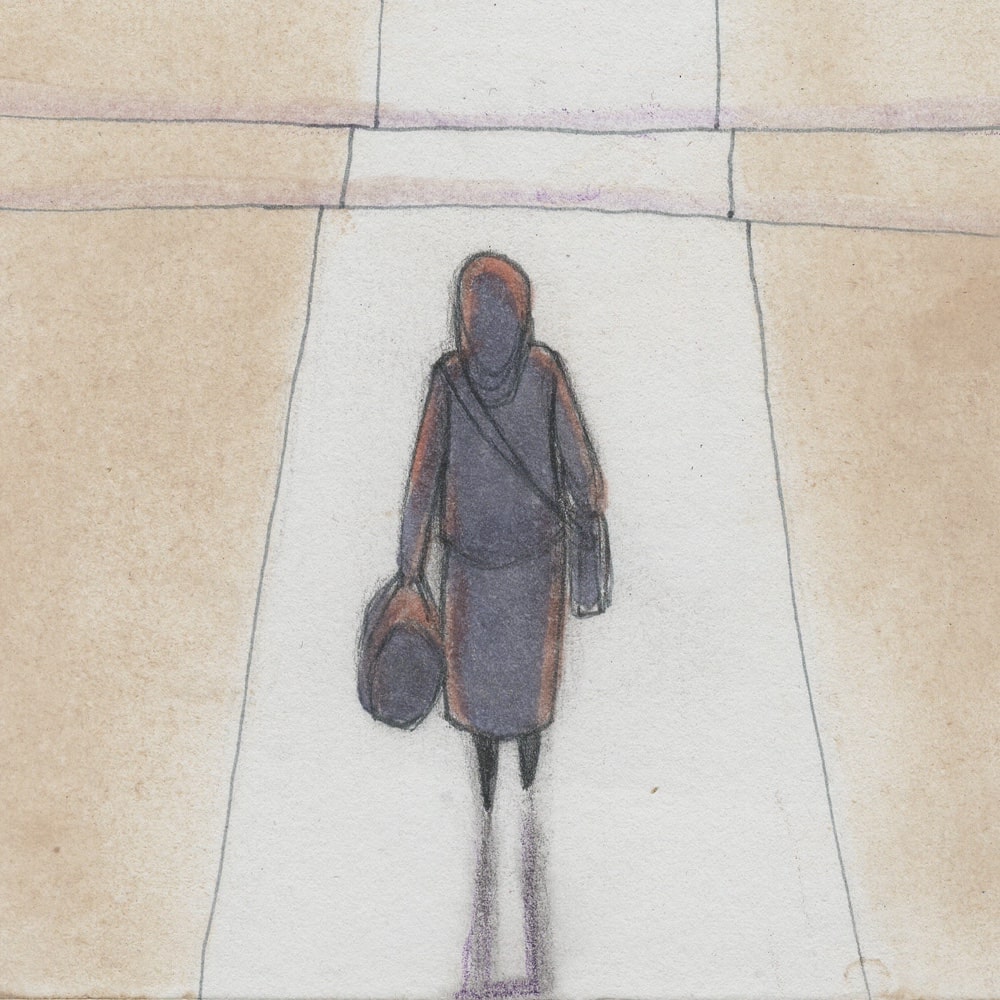
MeeraJordan, 2018Read →
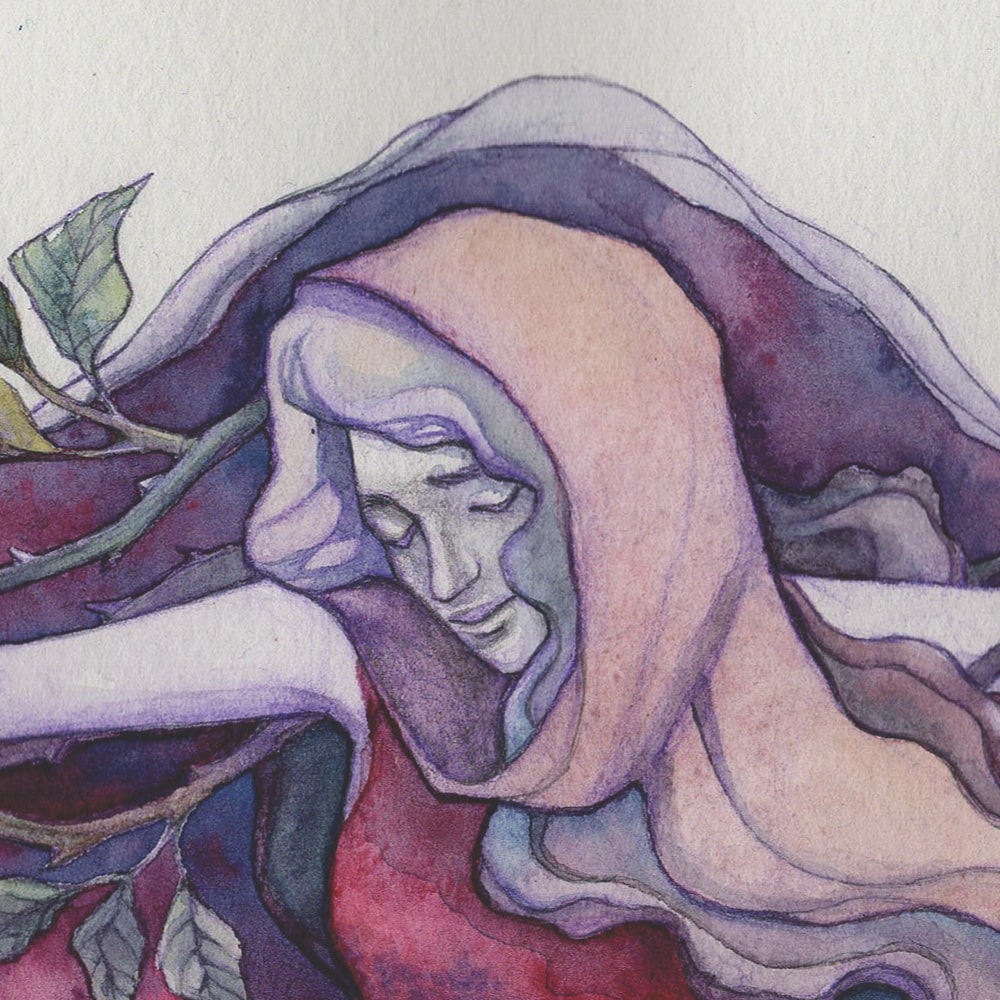
ZahraJordan, 2018Read →
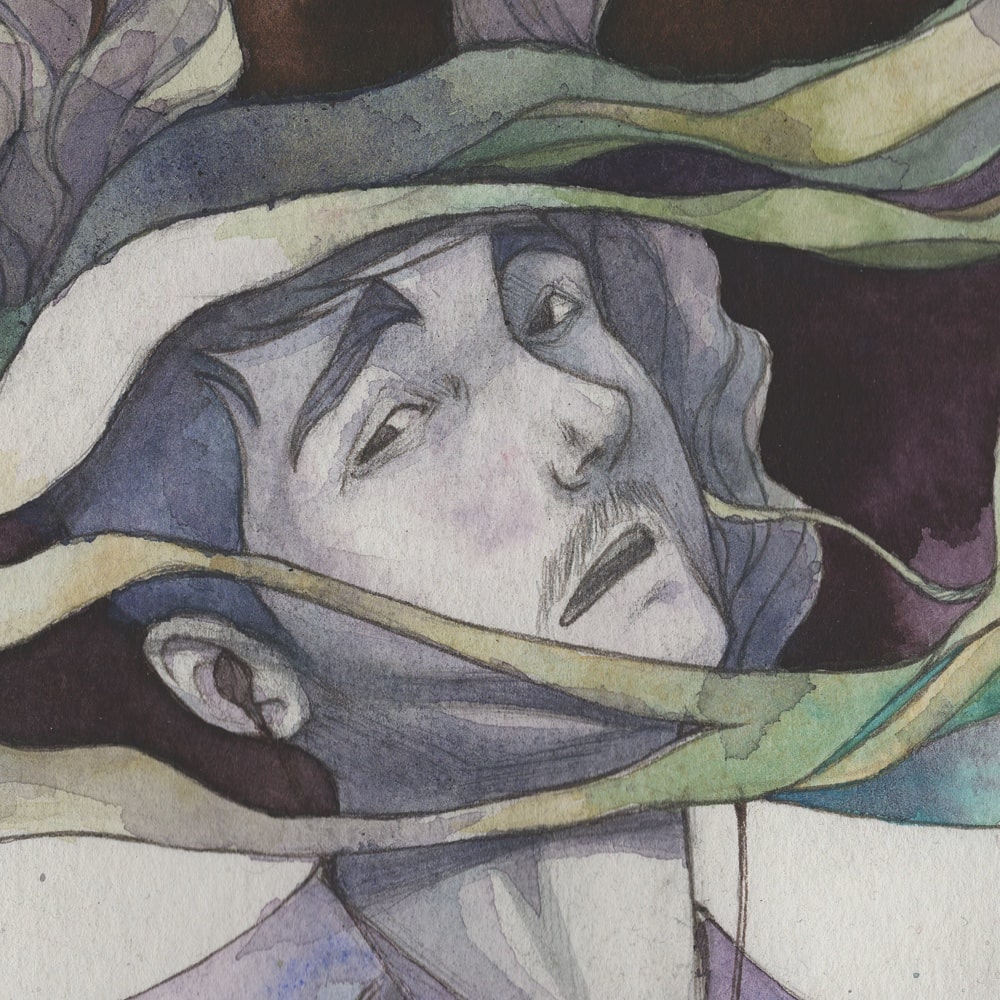
Hassan and AkramJordan, 2019Read →
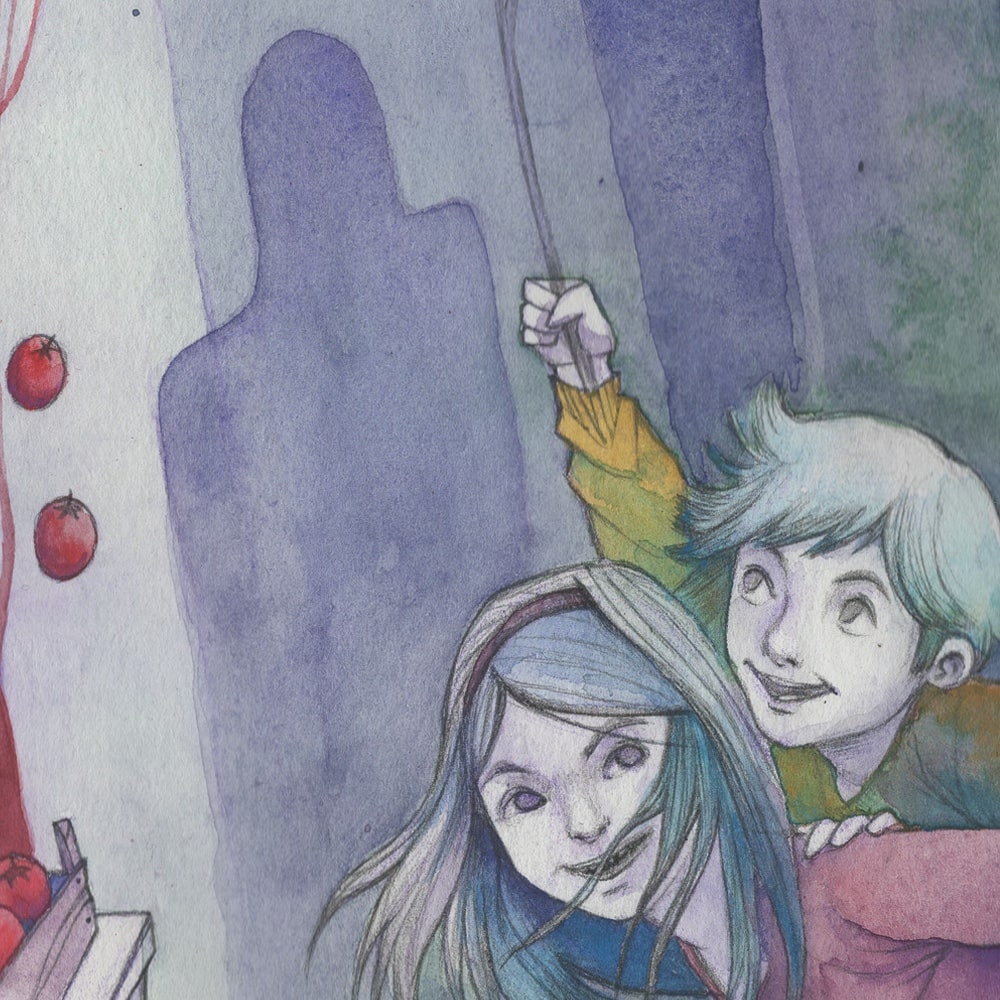
NoorJordan, 2018Read →
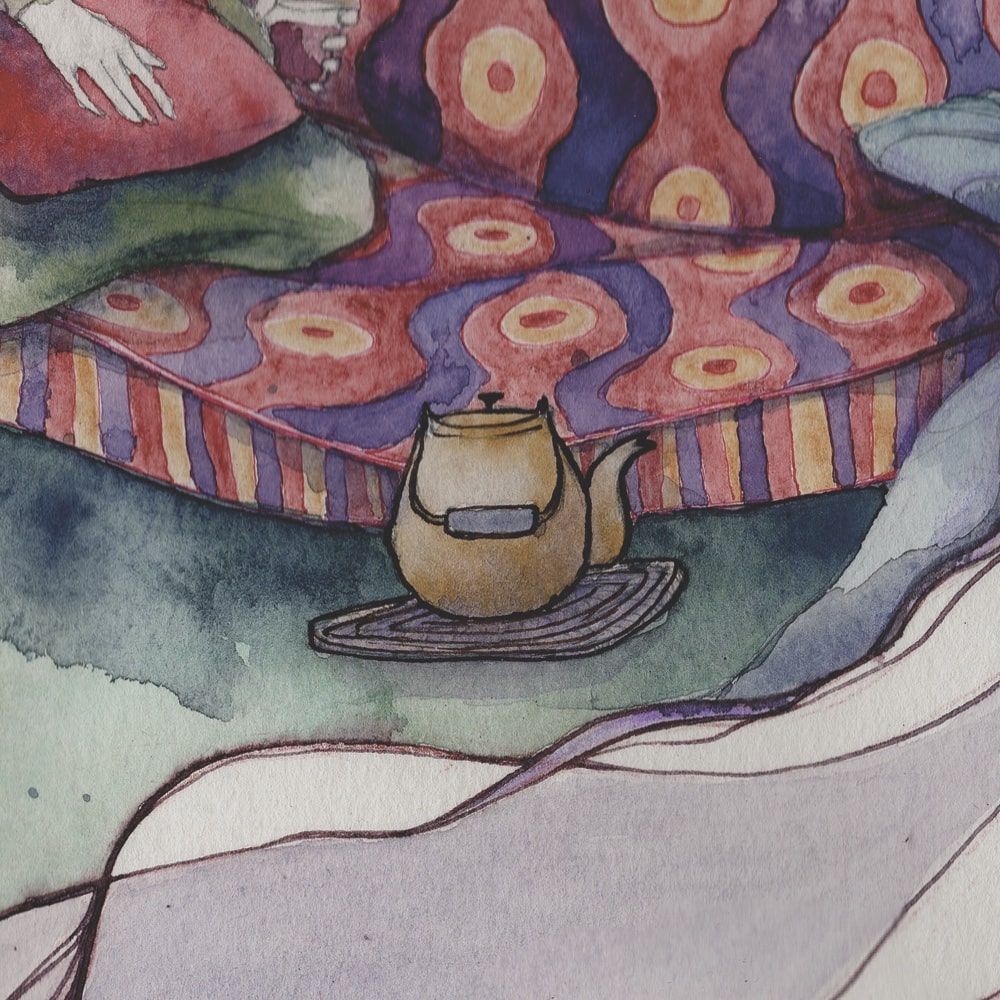
Safa and LeenaJordan, 2018Read →

Hassan and AkramJordan, 2019Read →
